I may get commissions for purchases made through links in this post.

Controlling your home’s relative humidity levels has significant more benefits than a reduced heating bill.
Airborne moist directly influences how comfortable you feel and inappropriate humidity can wreck your house as well as cause serious illnesses.
Did you know…. that improper humidity can make you feel cold, clammy or itchy and even depressed?
No wonder relative humidity, a factor of air quality that should not be underestimated, has gotten more and more attention the past years.
Considering home is the place we spend most of our time, maintaining ideal indoor humidity levels is an essential element of living consciously.
On average people spend about 90% of their time indoors and 65% of that time we are at home.
As you read you’ll discover:
- How improper humidity levels can wreck your health and home
What you may not know about poor humidity levels and your health
When it’s humid outside we notice the air is thick and we tend to sweat easily. In case of excessive indoor humidity we react differently. It often results in respiratory infections and allergies which lead to sneezing, coughing, and itch.
In fact, many illnesses are either caused or aggravated by poor indoor air quality. Some of the symptoms of poor humidity levels include, upper respiratory congestion, wheezing, fatigue, dizziness, and watery eyes.
More severe health effects due to poor indoor air quality include: rashes, nausea, rapid heartbeat, asthma attacks, heat stroke, muscle pain, and frequent headaches.
This is what happens when excess indoor humidity gets a hold of you
a short real life example:
My niece has a permanent runny nose, is the only one in her family that suffers from allergies, and once in a while feels dizzy for no directly assignable reason. One time she was confined to bed because of a really nasty balance disorder. Another time she suffered from a truly horrible itch that last for days and felt almost unbearable.
When I visited her at her house a while ago I noticed a moist scent. At a following visit it smelled damp again. I asked her about it and she told me she realizes she doesn’t ventilate sufficiently. Also the presence of silverfish indicate excess humidity in her home.
Just a week ago her doctor urged her to take action upon the home humidity situation after she recently had to brake off a trip abroad because of feeling weak, wiggly and dizzy. The cause? A virus according to the MD but seemingly, considering his recommendation, related to indoor moist.
Note: I do not want to claim that all my niece her complaints are a direct result of excess humidity. However, all of these are generally linked to improper humidity levels or subsequent mold or mite allergies.
The link between improper humidity and feeling depressed
We all agree that peeling wallpaper, a damp scent, moist spots, mold and mildew, or rotting frames do not create the most appealing atmosphere. But are you aware that humidity levels directly impact your mood? Even far before such telltale signs are visible.
A study by Persinger (1975) shows that there are “significant negative relationships between relative humidity and “mood scores,” which represent a measure of happiness.”
Another study found that physical strength, feeling healthy, happiness, and social affection are specific aspects of our emotional well-being that were influenced by relative humidity.
Why both old and new homes are at risk of being wrecked by moisture
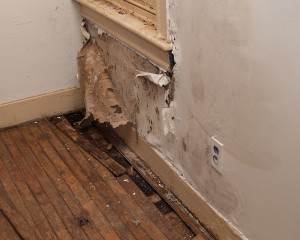
When indoor humidity levels are too high, condensation on windows and walls starts to cause structural damage. Damage to the house manifests in wood rot, molds, damp spots, and corroding furniture.
Costly damage caused by moisture that builds up can occur between the walls and ceilings, paint may start to peel as well as permanent wood warping/damage.
Water can also seep in between window molding and weather stripping, which can either freeze or expand depending on external temperatures, and cause damage that way.
Older homes and apartment complexes may not be as well equipped with proper insulation and ventilation and are less energy efficient. Such homes may be more susceptible to holding a surplus of moisture. Poorly insulated walls, ceilings and windows can retain an excess of moisture within the home.
Buildings that are more structurally sound are generally able to retain proper heat and moisture levels. On the other hand, modern homes are insulated to trap heat, doors and windows are weatherstripped and caulked to lock out cold outside air.
These superinsulated homes, still a result from the oil crisis in the mid 1970’s when the trend to reduce energy usage was born, also keep excessive moist, or too dry air, inside. Since air remains longer within, so do pollutants present in the air. Mechanical ventilation in the form of heat recovery ventilators (aka heat exchangers) is highly recommended for such tightly sealed homes.
What real estate flippers do when they see damp spots
You’ve seen those home flipping programs on TV right? Then you may know how these house flippers react when there are indications of excess moisture. A simple damp spot often means the purchase is a no go. It’s a warning sign. A huge, fierce waving, bright red flag. Why?
Because where smoke is is fire and where moist is is mold.
Well, there’s a big chance on mold and mold is not only dangerous to our health but can be very hard, if not impossible to get rid of. It’s no exception that in case of severe mold infestation all the floors, walls, and ceilings have to be replaced. Needless to say this makes an investment a whole lot less attractive.
Mold’s reproductive spores are tiny and elusive, easily released to the air thus easily inhaled. Exposure can lead to nausea, headaches, skin rashes, runny noses, sinus problems, and coughing.
Memory loss and feeling tired and listless are also commonly described to mold but according to the CDC these are not proven.
Some people have no sensitivity to mold. They just don’t get sick or feel unhealthy. Others however are extremely allergic to mold.
Little known effects of excess humidity
Medical studies indicate that maintaining your home’s humidity between 30% and 55% restrains the survival of various viruses, including influenza, polio, measles, and herpes.
Not only viruses but also fungi, mites, molds, mildew and other sick makers thrive on high humidity.
Mite populations, for example, flourish at 80% relative humidity but are minimized when the relative humidity is below 50%. Molds thrive in dark, damp and humid places, and are not only detrimental to a home but its human inhabitants and their pets as well. Most species of fungi need a relative humidity of at least 60% to exist. Bugs such as cochroaches and centipedes also love humidity.
But to make matters worse, there’s toxins too..
The amount of formaldehyde from indoor building materials that evaporates is also influenced by relative humidity levels. The same applies to the formation of salts and acids from sulfur and nitrogen dioxide, and the rate of formation of ozone.
Causes of moisture issues
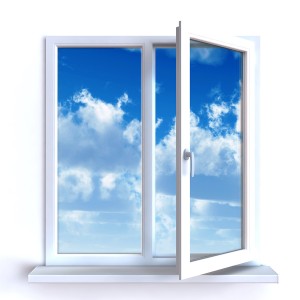
A variety of issues can affect the amount of humidity within the home. From a damp basement, leaking or sweating pipes to a leaky roof or ceiling. Toilet tanks, water pipe surfaces, or windows, may cause condensation during the cooler months.
Or maybe there is poor drainage in the area in which you live which causes excessive or unnecessary flooding. But in many cases it’s simply a matter of insufficient ventilation.
Carpet can retain moisture and, on humidity thriving dust mites, love to live there.
Malfunctioning oil and gas based heating appliances or combustion appliances can also emit moisture if they are not serviced or function properly. This is called combustion spillage or backdrafting.
Heating systems need to be inspected and adjusted by a heating contractor every three years for gas based, and annually for oil based. If you use unventilated space heaters, read and follow the manufacturer’s instructions carefully.
Combustion appliances include; space heaters, ranges, furnaces, fireplaces, water heaters and clothes dryers. Improperly vented of unventilated combustion appliances will greatly increase the moisture and pollution of the air.
What exactly is relative humidity (rH)?
Humidity is vaporized water contained in the air. The current temperature along with the amount of vaporized water is known as relative humidity (rH).
Warm air is capable of holding more water vapor than cold air. When the air contains as much vapor as it can possibly hold for what the current temperature may be, the humidity level is at one hundred percent.
Once the air has reached the point of holding one hundred percent humidity, it is also known as reaching its dew point. Once air has hit its dew point, water droplets or condensation, now becomes visible on windows, walls, and possibly other objects located within the home.
Ideal indoor relative humidity levels
Most adverse health effects caused by inappropriate relative humidity are diminished by maintaining indoor levels between 40% and 60%.
If you live in a climate where the seasons change drastically from one to the next, it is especially important to know how to properly measure and maintain the suggested humidity levels. Apart from relative humidity, also air movement contributes to thermal comfort.
In the summer months, it has been noted that the relative humidity level should be no more than 60 % and in the winter months about 20%+. These numbers are assuming that there is a constant indoor temperature of 68 – 75 degrees throughout the winter months and 72 – 79 degrees during the summer months.
How to save money by controlling rH
When I was a kid we lived in an old farmhouse that always felt drafty and cold. It had a musty smell. There was condensation on the windows all the time and even in summer it wasn’t pleasant. My parents energy bills were sky high.
Your thermostat is on a comfortable temperature but you still feel cold? Chances are the humidity in your house is too low.
When it gets colder outside the ideal indoor relative humidity will decrease. This has to do with the fact that there’s a bigger difference between indoor and outdoor temperature in the winter. Since warm air can hold considerably more moisture than cold air a higher indoor temperature and RH result in a bigger chance on exceeding the desired indoor humidity levels.
Therefore, such conditions ask for humidification during winter in areas with cold winter climates. Also, higher humidity can help you feel warmer so when condensation is not an issue you may want to keep indoor humidity a bit higher. When humidity is low you feel colder. This is due to moisture evaporating from your skin which ensures a cooling e ffect.
Dehumidifying allows you to use up to 3% less energy for every degree the thermostat is raised.
| Outdoor Temperature | Recommended Relative Humidity | |
|---|---|---|
| Celcius | Fahrenheit | |
| +20° and above | +68F and above | up to 35% to 40% |
| +10° | +50F | up to 30% |
| 0° | 32F | up to 25% |
| – 10° | 14F | up to 20% |
| – 20° | -4F | up to 15% |
How to measure indoor humidity
Do your windows ever fog up? Have you noticed any moisture build up within your closets or have a presence of mold in your home or apartment? Are there silverfish crawling around? Any time moisture is visible in the home it indicates that your living space has too much humidity.
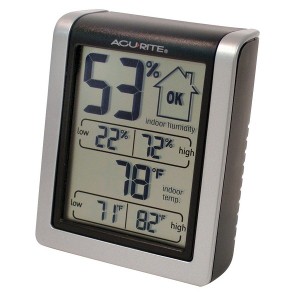
Here’s a simple test that can be done with items that everyone has at home to measure if the air is considered too dry or not.
You should conduct this test in a separate area from the kitchen because if you are cooking or have just cooked, the results may not be as accurate as they would be if this test had been performed elsewhere.
- The first step is to get a glass with three ice cubes of ice in it, fill with water and stir.
- Once this is complete, wait a total of three minutes and then check to see if there is any condensation that has formed on the outside of the glass.
If the answer is no, then the air in your home is too dry and you may want to purchase a humidifier. You could also, for example, temporarily ventilate less while showering or cooking.
Humidity sensors
Since outdoor and indoor temperatures fluctuate, the best way to measure humidity is with an instrument called a hygrometer. Hygrometers, a.k.a. humidity sensors or relative humidity indicators, measure the amount of condensation as well as evaporation.
There are quite a few variations of hygrometers available in various price ranges. The cheaper models are mechanical and may respond less quickly than digital, battery-operated models.
By far the most popular and very well reviewed humidity gauge on Amazon is the AcuRite 00613A1 Indoor Humidity Monitor at not even 10 bucks.
Nest (the smart thermostat) now has a ‘Cool to Dry’ feature that‘s designed for extremely humid climates. It automatically detects humidity and let’s Nest optimize your air conditioner to avoid a muggy house. Be aware that it’s an expensive way of reducing humidity so it’s recommended to try other options first.
The benefits of ideal home humidity levels
To wrap it up, there are 10 reasons to dehumidify your damp house.
- less bacteria and viruses,
- less bugs,
- reduced risk on allergies caused by dust mites and other bugs,
- no mold and mildew,
- less toxins,
- increased overall wellbeing (a more pleasant atmosphere),
- fewer trips to the doctor because you are healthier,
- you will probably feel happier
- lower heating costs,
- no risk on damage to the house and furniture.
Here are tips on how to reduce home humidity.
Are you familiair with indoor humidity issues? Share your experiences below.
Image credit: Fight Club, Twentieth Century Fox Film Corporation

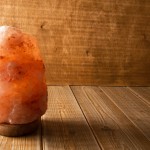







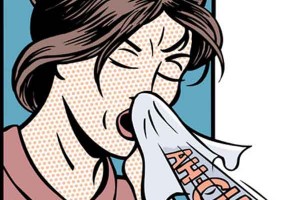

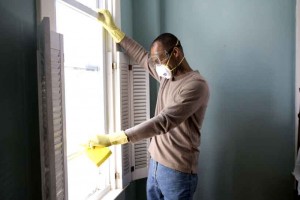

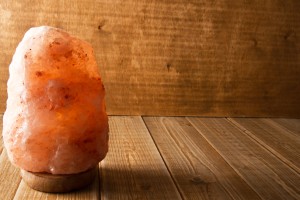









“Your thermostat is on a comfortable temperature but you still feel cold? Chances are the humidity in your house is too low.”
Hi there! I think you got your physics wrong with that statement… It takes more heat energy to warm water molecules than air molecules, so the more water molecules in the air (higher relative humidity) the more heat required to warm that air… check the following link for more info
http://www.decodedscience.org/why-does-damp-cool-weather-make-it-feel-colder/6736
cheers
I am running a dehumidifier with 20 rh at 73F and it is most definitely a cooler feel because of evaporative cooling of skin or chill factor. Cheers.
You missed the original point entirely. Idiot.
So classy. Must have been a real excercise in strength to call someone an idiot online.
I get what your saying, but I am interpreting the information as referring to the temperature in the home not the energy used to heat the home to a certain temperature.
Comment in response to Joe Blow.
I think the physics there referring to is the evaporative cooling effect of your body when the humidity is low. Just the opposite happens in summer when the humidity is high.
@Joe Blow
Hi there! I think you got your physics right, but applied them incorrectly to a statement, which has nothing to do with what you trying to prove. You sure do sound smart, though! When you move out of your mom’s basement and get your own place, then you can control the humidity and thermostat to see if higher humidity makes you feel warmer.
*Spoiler Alert* It does!
*Double Spoiler Alert for a Random Fact* This especially applies to the freezing/heating applications to an unprotected human body which is exposed to the vacuum of outer space!
cheers
I hate to break the bad news to you, but the statement is right. Because of the low humidity, the sweat you produce will evaporate faster. In doing so, it draws the energy it needs from your body, resulting in your body having to direct extra energy to that area to stay warm.
Dry air actually makes you sweat more than you would think. It is just not as noticeable because it evaporates so fast.
Sweat is normally regulated by the body, so it’s not a constant. When it’s cold you should sweat less than when it’s hot, as the body tries to cool down by producing more sweat.
Joe Blow, I thought the same when I read that statement! I agree with you…its in reverse, the more humidity, the cooler I feel.
Joe Blow, I am a college physics professor and you are 100% correct. The higher humidity in a cold environment makes one feel cooler, not warmer. The opposite is true during the summer. The statement should be “Chances are the humidity in your house is too high”. That is a simple fact that has been known since the beginning of time by the average non-scientific person. It’s surprising that so many reading this article and replying to you get it wrong. Do they simply want to troll you for being smarter than them?
Joe Blow, I am a college physics professor and you are 100% correct. The higher humidity in a cold environment makes one feel cooler, not warmer. The opposite is true during the summer. The statement should be “Chances are the humidity in your house is too high”. That is a simple fact that has been known since the beginning of time by the average non-scientific person. It’s surprising that so many reading this article and replying to you get it wrong.
Dear Sirs
I am a member of a residential strata council in Victoria which also has a dental office on the ground floor. The dentist has been having moisture issues: laminate flooring failures and dripping condensation on water pipes. The dental office has a below grade concrete slab floor with water pipes in the ceiling.
We have had a recent report stating that the “temperature and relative humidity readings inside to dental office were 16 to 20 degrees C and 90 to 75% RH when outside ambient air was 10 degrees C and 85% RH, at a time when no dental stations were active in the office” and that the RH should be lowered to a target of 50%.
We have limited experience with situations like this and I am looking for an opinion of:
1. Is 90 to 75% indoor RH too high?
2. Would this high RH likely produce heavy condensation on water pipes?
3. Would high RH potentially cause early deterioration of laminate flooring, if the flooring was not suitable for high RH conditions?
4. Is high RH normal for dentist’s offices?
We don’t know who to ask these questions of and I am hoping for your assistance or direction where to look for the answers.
Thank you for your assistance
1. yes, generally, 40 to 60 percent is recommended. Lower in winter than in summer.
2. could very well be. Sweating pipes is common in basements, not in living spaces so it’s an indication something needs to be done.
3. yes.
4. no.
1. Yes indeed. at ambient temperatures (15-25C) the RH should be sitting between 40 and 50%. Anything higher will promote bacteria growth, which is a major issue in any dwelling, let alone a medical facility.
2. At the rates you mentioned, the condensation will be dripping of the pipes, creating moisture damage in the ceiling and walls, while promoting mildew and mold.
3. Same as #2. The moisture will deteriorate the glue, holding the laminate down, and mold and mildew will do the rest. On the other hand, too dry air will make the laminate brittle and deteriorate it in that way. So again, try to get the humidity to stay between 40 and 50%. In the winter, you may consider going to about 30%, to avoid excessive condensation on windows.
4. High RH is not common to dentist’s offices. The issue here lies in the location. If the slab wasn’t properly insulated with a vapor barrier and the below grade walls not insulated with an RH20 insulation, you can have moisture seeping in through the slab and/or the wall, creating this very issue. It is a common problem in the basement of older buildings.
You can ask these questions at any engineering office or construction company or the city building inspectors. In your case I would not involve the latter yet, as they are bound by the rules and regulations to declare the space unfit for occupation due to the high moisture content.
The first thing that needs to be done, is dehumidify. Best of luck and I hope this answer helps you, if you haven’t solved the issue yet.
I understand the chart above as it is based on indoor temperature being 70 degrees. What I would like to know is what the humidity should be when the indoor temperature is 80 degrees and a fire going in the fireplace.
My uncles is 94 and is always cold so he sets his indoor temperature at 80 degrees and has a fire going in his fireplace as he sit right next to it. When we have been in his house for a while our noses seem dry, and once in a while if we sleep over someone wakes up with a bloody nose. The home is always at 80 degrees and sometimes a little warmer and the humidity is around 40 percent. Could someone help me get the answer so we can all be more comfortable in his house. I think that the temperature of 80 and humidity of 40 may be the reason uncle Bert is always couching and can not be good for his over health.
I have lived with my mother who was also a senior. Their skin is thinner they tend to be colder than younger adults all the time for that reason. Have your uncle put on a sweater. If waking up with dry sinuses or bloody nose air is too dry because of high heat. Might need a humidifier for that reason. Had same issues everyone turning heat up and down but usually happens when air is too dry. Can put a hygrometer in room that looks like your thermastate and it will give you the humidity level of the room. Levels can be adjuted by adjusting temperature in home to get optimal humidity that is safe. Can look up charts for temperature and correct humidity for home. If adjusting heat levels are too high then need dehumidifier. If levels too low need humidifier.
This info is sort of interesting but with so many typos I’m having a hard time taking it seriously.
I don’t know much about humidity. All I know is, out of nowhere, I wake up coughing like crazy and have severe post nasal drip, with my head filling up with mucous minutes after blowing my nose and having to violently cough it out. That being said, it’s summer. Yesterday was an extremely hot and humid day and then it stormed and got cooler out. My windows were all covered in condensation this morning, and it’s 70 degrees outside and about 75 inside. Wondering if that means the humidity is higher inside than outside, or lower. I definitely feel that something abruptly changed with regard to humidity and my house to warrant this excessive mucous and coughing but I don’t know what. All the sites I’m on say allergies but not buying that.
You are correct in stating it’s not merely allergies. Yes, they can be more noticeable due to high RH, but high RH in itself can cause the same symptoms. On hot humid days, you will notice a lot more condensation coming out of your AC unit.
Condensation on your windows doesn’t always mean you have a high indoor RH. You will see some condensation, especially in winter, if the indoor temperature is a fair but higher than the outdoor temperature, regardless of whether the indoor RH is high or not.
The best advice I can give you is: get a humidity sensor. You want an RH between 40 and 50%. In the winter you can drop it a little lower to a minimum of 35%, but it would be advisable to try and keep it steady, as you try to keep your indoor temperature steady year round as well. The only reason to drop it slightly in the winter, would be if you have excessive condensation on your windows.
Don’t make the air too dry. That will cause issues like dry skin, eye irritation, dry or bloody nose and dry cough. It will also make you feel cold, despite the high temperature. This is due to the fact that your body is sweating, but the sweat is evaporating right away, drawing heat from your body to do so.
I live in super dry Colorado and I’ve developed all kinds of respiratory problems since I moved here. I felt way better in the humid climate and didn’t have a persistent dry cough
Perhaps these tips on how to combat dry air may help.
After Long time uses experience can consider that the relative humidity between 40% and 60%.. !!!
Ideally, measure and attempt to keep your indoor humidity around 45% in the summer and around 65% in the winter. Dehumidify your home in the summer and use humidifiers to increase the humidity in your home in the winter. This will keep comfortable, healthy and it WILL lower both your cooling and heating bills.
To highin the winter for me. It gets -10F here in the winter months. My wife bitches when I have it 40%. We have hardwood floors in most of the upstairs which is why I want it that high. She says it makes it feel cold.
Try and stay within 40-50%. If your wife is still complaining it feels cold, try bringing the humidity up to 45-50%. Chances are it will actually feel warmer. This is due to the fact that your body is sweating, but the sweat is evaporating right away, drawing heat from your body to do so, especially in a lower RH range. A higher RH will lessen the evaporation factor on the skin, thus not drawing as much heat from the body.
You are absolutely right in trying to maintain the same RH throughout the year, as wood starts to warp and crack with a fluctuating RH of 15-20% and more.
Please learn about the word “fewer” and how it is not interchangeable with “less.”
FTFY.
The recommended relative humidity chart in this article is incorrect.
A maximum relative humidity of 15% is inappropriate for humans, regardless of external temperature. Even maximum levels of 25% would be uncomfortably dry, but below 20% will cause eye irritation.
The point of the chart seems to be to recommend a relative humidity that will minimize condensation and lengthen the lifespan of building materials, but you seem to have forgotten that humans have to live in the building.
As others have pointed out, this article should not be taken seriously in light of the significant errors it contains.
It says “safe” money, is that a typo?
It was. Thanks for pointing that out.
I have a brand new home the windows fog up and also have a draft. Were trying to get the builders to fix the windows. The two front rooms are very cold. We have canary it says house is under 40 percent humidity. Could it be due to the house? What could we do ?
How can they fix the windows? If the re cheap windows they need to be replaced.the right balance needs to be achieved …a very air tight house will produce condensation as well.there is no way the humidity is so low (40) and you get moist on the windows.i sugest you to buy a dehumidifier run it all night in a room and i promise you re windows will be dry( with no curtain)
This is informative to my owe research tips and i must say i’m grateful for such a clear insight to indoo humidity control
THanks your article really help me in finding the real reason of my sickness.Again thank you for writing such an amazing article.
Can maintaining the right humidity help in these hard times of coronavirus? Does someone know? Thanks.
It seems it could. This video at about 4 minutes in addresses this https://www.youtube.com/watch?v=efaDuE-XEi4
You guys have way to much time on your hands and the dude with the sweaty pipes has no common sense